
How to Have Tough Conversations with Your Kids
When my kids are struggling and have tough questions, I hope they come to me as their parent. Don’t you? We certainly don’t want them asking Google: “Is God really loving?” What can we do so that they will come to us with their struggles? And when they do, how can we best handle that conversation?
It was my privilege to discuss these questions with Dr. Kathy Koch of Celebrate Kids. You can watch our discussion in the video below. Some of the practical guidance she gives includes these ideas:
- Be fully present and available to your kids.
- When your kids are struggling, be ready to demonstrate unconditional love and empathy.
- Ask your children to share their thoughts instead of immediately correcting them.
- Listen longer.
- Say, “Thank you for trusting me.”
- Admit when you don’t know the answers.
- Research problems together.
- Call grandparents together and get their input.
Five Reasons NOT to Be Scared of the Testing Requirement
by NCHE Guest Contributor Whitney Cranford Crowell
 Out of all the months of the year, October is perhaps the one most associated with the ghoulish and the ghostly. But no witch or goblin could ever strike fear into the hearts of new homeschoolers as much as our state’s annual testing requirement.
Out of all the months of the year, October is perhaps the one most associated with the ghoulish and the ghostly. But no witch or goblin could ever strike fear into the hearts of new homeschoolers as much as our state’s annual testing requirement.
Never fear! Testing your student once each year really shouldn’t be any scarier than the adorable little princesses and superheroes who parade through your neighborhood each October 31. Here are five reasons you should ditch the standardized testing superstition:
1. Nobody Has to See the Scores but You
Yes, that even includes your student! If doing well on a difficult test motivates and inspires your child to continue reaching higher, then by all means, share the results! But if test scores only produce anxiety or lower your child’s self-esteem, there’s no need to even mention them. Simply file the score sheet away as part of your school’s official records, and go on with life.
It’s possible that you may be asked to show proof of testing to a representative from DNPE at some
point in your homeschooling career, but most of these meetings are strictly voluntary. And DNPE isn’t
interested in evaluating your child’s test score, but only verifying that you’ve had him tested. Test scores may also be requested should you decide to enroll your child in a public or private school, but there are generally other options available for placement if you feel that they don’t accurately reflect your child’s abilities.
2. Testing Can Give You Good Information – About Your Student and About Yourself
While they’re far from perfect, standardized tests do exist for a reason, and they can give you valuable information about your student’s strengths and weaknesses. They can also show you where you, the teacher, may need to up your game and find a better way to meet your child’s needs– whether that means providing extra support or extra challenge. In order to glean the most useful feedback, it’s important that you know how to properly read the test’s score report, so be sure to take the time to study the explanatory key included with your child’s scores.
3. “Test Prep” Is Unnecessary
The emphasis on testing and test prep is one reason many families have left public school. But as
homeschoolers, we have the benefit of being able to use the tests for the good they provide us without the added stress of weeks of prep. If your child is completely unfamiliar with the mechanics of taking a test (such as filling in bubbles), you might wish to introduce those to her prior to test day. But spending a lot of time preparing for the test is unnecessary. Instead of test prep, focus on providing an enriching educational environment and experience.
4. Test Scores Aren’t the Boss of You
Annual and end-of-course testing can cause a lot of anxiety because of the influence they exert
over a class’s final grade or promotion to the next level. But in your homeschool, test scores don’t have to change anything unless you want them to. Decisions about the course of study, promotion to the next grade, and how high school credits are earned are completely up to you. You know your child best!
5. Finding and Administering a Test Doesn’t Have to Be Difficult
The State of North Carolina requires homeschoolers to administer a “nationally standardized test or
other nationally standardized equivalent measurement” which “measure[s] achievement in the areas of English grammar, reading, spelling and mathematics” annually to each enrolled student. There are many options that fulfill this requirement. Most are relatively inexpensive (in the $25-$60 range), and many can even be administered at home, although some require the administrator to have a bachelor’s degree.
If you’re not comfortable administering a test at home, contact a few co-ops in your area to see if they
offer group testing. You can also utilize one of the many testing services in our state, or choose a test
that is given one-on-one by a trained administrator, such as the Woodcock-Johnson.
NCHE has a wealth of information about testing on its Testing and Testing Services page. Remember:
When it comes to testing, DO be prepared, but DON’T be scared!
Whitney Cranford Crowell knew she had reached peak homeschooling when she bought a custom nine-foot by six-foot bookcase with matching ladder and still did not have room for all the books. She lives in her childhood home outside High Point, with her husband of twenty years, their fifteen-year-old daughter, and their nine-year-old son.
Are you a new NCHE member? We’d love to meet you! Introduce yourself in the comment section below, or email us at nche@nche.com. We are serious about our commitment to serving each one of our members. Thinking of becoming a member? Start here.
How Can I Help My Children Remember What They Are Learning?
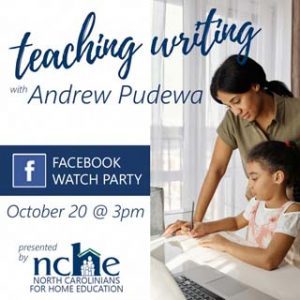 Have you encountered the frustration of spending time and energy trying to teach your children something, only to discover that they completely forgot about it in a week, a day, or even in a few minutes?
Have you encountered the frustration of spending time and energy trying to teach your children something, only to discover that they completely forgot about it in a week, a day, or even in a few minutes?
In my recent interview with Andrew Pudewa, I asked him about how we can help our children remember what they are learning? Listen to our conversation to learn how three dynamics of memory work: 1) Frequency, 2) Intensity, and 3) Duration. Frequency is the basic repetition of facts that we often use. Intensity is a dramatic experience that causes us to remember something. And duration is the reinforcement of repetition over longer periods of time.
As you listen to our conversation, you will also hear about the time Andrew stapled his finger and learn how to say “toilet” in Japanese!
The rest of the interview covered challenges and tips on how to teach writing. This is a daunting task for many of us! If you’d like to see the portion of the interview on teaching writing, then join us on the NCHE Facebook page for a Watch Party on October 20 @ 3pm.
Go here to learn and more and sign up for a reminder.
Six Bugs You Should Not Touch
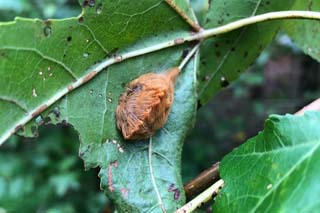
Our family really likes bugs. This year, we sorely missed attending BugFest: the annual North Carolina bug festival. Insects are an important part of most ecosystems. They pollinate flowers and foods, help control harmful pests, and they are the food source for other animals. Plus, insects are pretty fascinating. Honeybees stop buzzing during an eclipse! In unison, they all become completely silent. That’s because honeybees don’t work in the dark. But not all bugs are friendly. Here are a few common North Carolina bugs to stay away from. Note: each insect’s Latin name is hyperlinked to an image so you may learn to identify them.
Spiders When it comes to spiders, the brown recluse (Loxosceles reclusa) and black widow (Latrodectus mactans) are two dangerous species that live here in the Tar Heel state. Brown recluses are brown, nocturnal, and usually not aggressive. But their bites can be fatal. The black widow is far easier to spot: they are black and have a red hourglass on their bellies.
Kissing bugs (Triatominae) are flat and light to medium grey-brown in color. They have distinguishing stripes around their abdomen. They carry a parasite that can cause Chagas disease.
The Cow Killer, or Eastern Velvet Ant, (Dasymutilla occidentalis) is not an ant at all. It is actually a furry, black-and-red-striped wasp. You are most likely to see them at dusk.
Tussock Moth Caterpillars (Lophocampa caryae) have a number of species on the East Coast. Their bristles may cause swelling, rashes, allergic skin reactions, and some of their bristles are even venomous.
A Stinging Saddleback Caterpillar (Acharia stimulea) is easy to spot by the giant… spot on its back! Touching its bristles could make you feel nauseated.
Puss Caterpillars, pictured above, (Megalopyge opercularis) are the larval form of the southern flannel moth, and a relatively new arrival to our great state. The toxins that these stinging caterpillars carry on their hair are excruciating and could also be toxic.
If your family spends time outdoors, this old adage may be helpful: when in doubt, give a shout! That is what I was taught as a child, and it meant I needed to ask my parents (or another adult) before I touched anything I found in nature that I didn’t recognize—especially if it was red, furry, or spikey!
– Sarah Hicks, Oct 12, 2020
Are you a new NCHE member? We’d love to meet you! Introduce yourself in the comment section below, or email us at nche@nche.com. We are serious about our commitment to serving each one of our members. Thinking of becoming a member? Start here.
Learning Differences between Boys and Girls
Have you “had it up to here” with homeschooling your boys? They are a special kind of student! If we listen to our culture, there are no differences between boys and girls. But any common sense observation tells you otherwise, and so does the research. Boys and girls learn differently. It is such a relief to accept this reality and make the proper adjustments so that your boys can learn in the way that God created them to learn.
 I sat down with Andrew Pudewa (creator of Excellence in Writing) in Virginia a few weeks back for an interview. One of the topics that emerged was the research behind how girls and boys learn differently and how we can make some helpful adjustments. Below you can view the part of our interview that addressed this topic. Some of the practical take-aways include:
I sat down with Andrew Pudewa (creator of Excellence in Writing) in Virginia a few weeks back for an interview. One of the topics that emerged was the research behind how girls and boys learn differently and how we can make some helpful adjustments. Below you can view the part of our interview that addressed this topic. Some of the practical take-aways include:
- Girls and boys learn differently and use their brains differently.
- Girls hear quieter sounds than boys. When boys can’t follow what is going on, they get bored very quickly.
- Girls are more sensitive to volume, so be careful about raising your voice.
- Help boys learn how to pay attention and develop the skill of listening.
- Boys are not good at being still. Making them sit down often does not facilitate learning.
The rest of the full interview covered challenges and tips on how to teach writing. This is a daunting task for many of us! If you’d like to see the portion of the interview on teaching writing, then join us on the NCHE Facebook page for a Watch Party on October 20 @ 3pm.
Go here to learn and more and sign up for a reminder.
A Season of Change
by NCHE Guest Contributor Cynthia White
 Fall is a season of change.
Fall is a season of change.
Coronavirus has forced us to slow down and see the world in a different manner. In spite of the circumstances you see before you, remember to bloom where you are planted in the midst of this pandemic. You are cultivating growth.
Homeschooling parents, you are cultivating a love of learning! Do not focus on the model, but on the concept that each of us is capable of learning and gaining knowledge through self-discovery, books, and even the internet.
You are planting seeds of perseverance, modeling that in tough times we do NOT give up! Instead we move forward in the spirit of victory. You have been called to teach your children. Do not take this task lightly and miss the wonderful opportunities in front of you. You are planting seeds of positivity. Your children are learning how to take an unknown
situation and flip it toward the greater good.
You are cultivating togetherness by spending precious time with your children. Take time to snuggle on the couch and read a book, or play digital games together. You are cultivating comfort and confidence as they see you doing something that you’ve never done before or weren’t prepared to do. Take pride in being able to guide and mentor your children through this season of growth.
We celebrate educators all over the world and their dedication to educating a generation that is our future. Remember, mothers and fathers, your children’s first learning experiences start at home with you. Use this opportunity to reconnect and nurture your children. Together, bloom where you are planted.
Cynthia recommends God’s Word as seeds for the soul: Deuteronomy 31:8, Joshua 1:9, Isaiah 43:19 and Psalm 55:22.
Cynthia White is a veteran homeschooling mother of a rising freshman and a 2018 graduate. She strives daily to walk closer with Jesus, live with purpose, and explore the length and width of this adventure called life, with her husband and daughters.
Are you a new NCHE member? We’d love to meet you! Introduce yourself in the comment section below, or email us at nche@nche.com. Thinking of becoming a member? Start here.
What Is My Kindergartner Supposed to Be Learning?
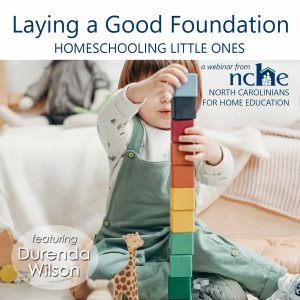 I received a text the other day asking this question: “Do you have any resources or a list of things kindergartners should know before 1st grade?”
I received a text the other day asking this question: “Do you have any resources or a list of things kindergartners should know before 1st grade?”
This text came from a young couple who has just started homeschooling their first child. I appreciate this question because it means they are taking seriously their responsibility to educate their children. It also reminds me how easy it is for parents to focus too much on content and to struggle with the difference between homeschooling and public or private school. I responded to his text:
“Great question! Different curricula will have slightly different expectations. They are learning their letters and beginning to read. They are learning numbers and some simple math. However, it is really important to realize that children have different abilities and will work at very different speeds on these subjects. As long as you are reading to them a lot and working on these things, then don’t worry too much about where they are in the process. They will get it!”
As parents of young children (ages birth through 7 or 8), we want to give our children the best possible start in life. There is pressure to get started early with academics because we are told that this is the best way to give them this best start, but what do the studies show about the best way to teach young children?
If you have questions about what and how your young homeschool student should be learning, then you’ll want to join us for the next NCHE webinar, Laying a Good Foundation: Homeschooling Little Ones (September 29 @ 2pm). Debbie Mason (NCHE Events Director) and Amanda Wares (NCHE Helps Director) will share their experience and what they have learned. They will then interview Durenda Wilson on this critical topic. Go here to register for free!
Seven Ways to Welcome Newcomers
 This is our twelfth year homeschooling, and although we have been members of the same homeschool support group for 10 years, this year we joined a smaller co-op. Before we went to our first meeting, I wondered how it would go. I hoped my kiddos would develop new skills this year. I hoped my children would make friends; I hoped I would make friends! In the past few months, we have deeply missed community.
This is our twelfth year homeschooling, and although we have been members of the same homeschool support group for 10 years, this year we joined a smaller co-op. Before we went to our first meeting, I wondered how it would go. I hoped my kiddos would develop new skills this year. I hoped my children would make friends; I hoped I would make friends! In the past few months, we have deeply missed community.
At the first meeting, the director introduced the new families. It was probably already somewhat obvious that we were new because we were wearing paper nametags and many of the returning members had lanyard nametags. It was probably also apparent by our unfamiliarity with the building, where to sit, or the order of things like where to go when we dismissed to small groups. I was thankful for the social distancing rules that regulated families sitting far apart from one another—it meant that my mind didn’t needlessly weigh out if people weren’t sitting near us for any reason other than courtesy.
I am humbled to say that from the moment we arrived, people welcomed us. They were helpful, friendly, and kind. Here are the things that I noticed seasoned moms did to help new people feel welcome.
- Moms introduced themselves to me; they initiated a conversation.
- They did not ask generalized, shallow questions for the sake of making small talk. They asked thoughtful questions.
- When I spoke, they weren’t thinking about something else. They were not on their phones. They were not nodding to me while giving their children the side-eye. They listened.
- They acknowledged my learning curve as a newcomer, and they did not treat my questions like they were a nuisance.
- They introduced me to their friends and included me in group conversations.
- They have followed up with emails to see how we are making our way.
- They have been patient with us as we are learning their group culture—things like how to turn in online assignments or working in online groups with other students.
So then we pursue the things which make for peace and the building up of one another. Romans 14:1
Are you a new NCHE member? We’d love to meet you! Introduce yourself in the comment section below, or email us at nche@nche.com. Thinking of becoming a member? Start here.
The NCHE Leadership Series part 6
 Connecting you with other homeschooling families across our state is our mission!
Connecting you with other homeschooling families across our state is our mission!
North Carolinians for Home Education separates the 100 counties in our state into nine regions. Each region has an NCHE regional liaison who actively engages with the people in their communities. Liaisons are frequently called to speak at regional gatherings, support group meetings, and community events. They are treasured by the NCHE board for their dedication to practically serving homeschooling families. Here is a list of regions 5 through 9 and their corresponding counties.
- Region 5 serves our capital (Raleigh), the greater Triangle area, and these counties: Alamance, Caswell, Durham, Edgecombe, Franklin, Granville, Halifax, Johnston, Nash, Northampton, Orange, Person, Vance, Wake, Warren, and Wilson.
- Nestled in the center of our state, Region 6 includes the following counties: Counties: Chatham, Lee, Harnett, Moore, Montgomery, Richmond, Anson, & Stanly.
- Region 7 includes our state’s eastern-most city (Manteo) and these counties: Beaufort, Bertie, Camden, Chowan, Currituck, Dare, Gates, Greene, Hertford, Hyde, Lenoir, Martin, Pasquotank, Perquimans, Pitt, Tyrrell, Washington and Wayne.
- Region 8 serves military families stationed at Pope AFB and other families in these counties: Bladen, Columbus, Cumberland, Hoke, Robeson, Sampson and Scotland counties.
- Moving east toward the Carolina coast, Region 9 includes the following counties: Brunswick, Carteret, Craven, Duplin, Jones, New Hanover, Onslow, Pamlico, and Pender.
In this final post in our series, we will meet the regional liaisons who serve families in these counties.
 Vicky Gurganus is the regional liaison for region five. She is married to her high school sweetheart: Tom. They live in Durham and have three children—Kira, Olivia, and Zachary. They opened their homeschool in 2001. Both have volunteered at the NCHE conference for many years. Tom and Vicky are excited to share what they have learned on their homeschool journey with others in Region 5.
Vicky Gurganus is the regional liaison for region five. She is married to her high school sweetheart: Tom. They live in Durham and have three children—Kira, Olivia, and Zachary. They opened their homeschool in 2001. Both have volunteered at the NCHE conference for many years. Tom and Vicky are excited to share what they have learned on their homeschool journey with others in Region 5.
 Tom Gurganus is a homeschool dad of 23 years. He and his wife, Vicky, have graduated 2 girls and have a son still at home. He is an avid board and card gamer and has been running his website for 11 years where he interviews game designers and publishers, and reviews games. Through this effort, he has developed a large game industry network and has connected with 2 fellow homeschool dads with an interest in the intersection of gaming and homeschooling—gameschooling, to start a site dedicated to connecting schoolers with information and resources to help them use games in their classrooms.
Tom Gurganus is a homeschool dad of 23 years. He and his wife, Vicky, have graduated 2 girls and have a son still at home. He is an avid board and card gamer and has been running his website for 11 years where he interviews game designers and publishers, and reviews games. Through this effort, he has developed a large game industry network and has connected with 2 fellow homeschool dads with an interest in the intersection of gaming and homeschooling—gameschooling, to start a site dedicated to connecting schoolers with information and resources to help them use games in their classrooms.
Sarah Merillat serves as our Region 6 liaison. She is an army wife and homeschool mom to their seven children in Moore County. The Merillats began their homeschool journey in 2010.
 April Briley is the regional liaison for region 7. April and her husband, Joe, are high school sweethearts and have been married for twenty years. They live in Greenville, NC, with their three children. Marisa (graduated homeschool), Brandon (now in pubic school), and Makayla (currently homeschooled). SGT Joseph Briley is a full-time soldier serving with the North Carolina National Guard. April enjoys being the full-time teacher of their three children. The family spends time serving in various areas of their church.
April Briley is the regional liaison for region 7. April and her husband, Joe, are high school sweethearts and have been married for twenty years. They live in Greenville, NC, with their three children. Marisa (graduated homeschool), Brandon (now in pubic school), and Makayla (currently homeschooled). SGT Joseph Briley is a full-time soldier serving with the North Carolina National Guard. April enjoys being the full-time teacher of their three children. The family spends time serving in various areas of their church.
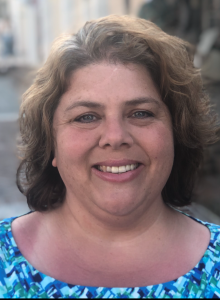 Amy Davis is the regional liaison for region 8. She is married to Christian, and they have four children. This is their 13th year homeschooling. Amy serves on the board of her local homeschool group. She enjoys music, theatre, and reading. As the mother of a son with autism, she has a particular passion for advocacy and helping other parents of special-needs children. Fun fact: Amy and Christian have an extensive home library with thousands of books.
Amy Davis is the regional liaison for region 8. She is married to Christian, and they have four children. This is their 13th year homeschooling. Amy serves on the board of her local homeschool group. She enjoys music, theatre, and reading. As the mother of a son with autism, she has a particular passion for advocacy and helping other parents of special-needs children. Fun fact: Amy and Christian have an extensive home library with thousands of books.
Kathy Iandoli is the regional liaison for region 9.
Are you a new NCHE member? We’d love to meet you! Introduce yourself in the comment section below, or email us at nche@nche.com. Thinking of becoming a member? Start here.
The NCHE Leadership Series part 5
 Connecting you with other homeschooling families across our state is our mission!
Connecting you with other homeschooling families across our state is our mission!
North Carolinians for Home Education separates the 100 counties in our state into nine regions. Each region has an NCHE regional liaison who actively engages with the people in their communities. Liaisons are frequently called to speak at regional gatherings, support group meetings, and community events. They are treasured by the NCHE board for their dedication to practically serving homeschooling families. Here is a list of our first 4 regions and their corresponding counties.
- Region 1 serves our state’s western-most counties: Buncombe, Cherokee, Clay, Graham, Haywood, Henderson, Jackson, Macon, Madison, Polk, Swain, and Transylvania.
- Travelling north and east, region 2 serves: Allegheny, Alexander, Ashe, Avery, Burke, Caldwell, Catawba, Iredell, Mitchell, McDowell, Stokes, Surry, Watauga, Wilkes, and Yancey counties.
- Continuing east, region 3 serves the heart of the Triad in these counties: Davidson, Davie, Forsyth, Guilford, Randolph, Rockingham, Rowan, Yadkin.
- Region 4 includes our state’s largest city (Charlotte: the Queen City) and these counties: Cabarrus, Cleveland, Gaston, Lincoln, Mecklenburg, Rutherford, and Union.
In this penultimate post in our series, we will meet the regional liaisons who serve in these counties.
 Jerri Neal has served as regional liaison for Region 1 since 2011. She and her husband, Freddie, have been married since 1990, are parents of 8 children, and grandparents of 2. Freddie and Jerri made the decision to homeschool when their firstborn was still in diapers, and they attended their first NCHE Conference when he was only 3. Jerri enjoys serving homeschoolers in the beautiful mountains of western North Carolina.
Jerri Neal has served as regional liaison for Region 1 since 2011. She and her husband, Freddie, have been married since 1990, are parents of 8 children, and grandparents of 2. Freddie and Jerri made the decision to homeschool when their firstborn was still in diapers, and they attended their first NCHE Conference when he was only 3. Jerri enjoys serving homeschoolers in the beautiful mountains of western North Carolina.
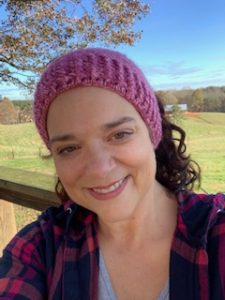 Melanie Willis serves as Liason to Region 2. She and her husband, Matt, we’re both born and raised in NC, and they currently live in Dobson, NC where they co-own a dairy goat farm. She is a mother to six children and has been homeschooling for 10 years. Melanie attended Appalachian State University and graduated with a degree in industrial technology, and she minored in music. Fun fact: Melanie enjoys music, cooking, and playing with all the farm animals.
Melanie Willis serves as Liason to Region 2. She and her husband, Matt, we’re both born and raised in NC, and they currently live in Dobson, NC where they co-own a dairy goat farm. She is a mother to six children and has been homeschooling for 10 years. Melanie attended Appalachian State University and graduated with a degree in industrial technology, and she minored in music. Fun fact: Melanie enjoys music, cooking, and playing with all the farm animals.
 Brea McClain was appointed Region 3 Liaison in 2018. The McClains live in Kernersville where they have homeschooled for 15 years. Her oldest son, Ransom, graduated in 2017, followed by Asher in 2019. She’s now teaching Sigourney, 17, in the 12th grade; Tobias, 15, 10th grade; and Corwin, 8, 3rd grade. The loss of her four-year-old son Joel in 2012 gave her a passion for rare disease advocacy, special needs education and grieving parents. Brea and her husband, Kevin, have served with the NCHE board since 2010, with Kevin filling roles as Education VP, President, IT Director, and currently Advisor. Kevin currently serves as The University of North Carolina at Greensboro’s GSuite for Education Administrator.
Brea McClain was appointed Region 3 Liaison in 2018. The McClains live in Kernersville where they have homeschooled for 15 years. Her oldest son, Ransom, graduated in 2017, followed by Asher in 2019. She’s now teaching Sigourney, 17, in the 12th grade; Tobias, 15, 10th grade; and Corwin, 8, 3rd grade. The loss of her four-year-old son Joel in 2012 gave her a passion for rare disease advocacy, special needs education and grieving parents. Brea and her husband, Kevin, have served with the NCHE board since 2010, with Kevin filling roles as Education VP, President, IT Director, and currently Advisor. Kevin currently serves as The University of North Carolina at Greensboro’s GSuite for Education Administrator.
Anita Hudson is regional liaison for Region 4. She and Keith have been married for 27 years and live just outside of Charlotte. Anita homeschooled their three children for over 20 years. Their youngest graduated (in 2019), so Anita is now a retired homeschooler! Keith and Anita have one married son and precious daughter-in-love with a grandchild due in 2021. Their oldest daughter is getting married this October and their youngest is a junior in college. Anita also helps lead the homeschool group at their church in Matthews. Fun fact: Anita considered herself the person least likely to homeschool, but the Lord kept nudging and placing homeschooling families as mentors for her and Keith! How grateful she is that His ways are not our ways and that she answered the call to homeschool! (As a side, Keith was ready to homeschool way before she was!)
Are you a new NCHE member? We’d love to meet you! Introduce yourself in the comment section below, or email us at nche@nche.com. Thinking of becoming a member? Start here.



